 A group of social scientists conducted the following experiment:
A group of social scientists conducted the following experiment:
Starting with a cage containing five monkeys, the scientists hung a banana on a string inside the cage and placed a set of stairs under it.
Within seconds, one of the monkeys went to the stairs and started to climb towards the banana. As soon as the monkey touched the stairs, the scientists sprayed all the other monkeys with cold water.
After a short while, another monkey made a similar attempt with the same result – all the other monkeys were sprayed with cold water. Before long, if any monkey tried to climb the stairs, the other monkeys prevented it from doing so.
They then put away the cold water and removed one of the monkeys from the cage and replaced it with a new one. The new monkey saw the banana and immediately started to climb the stairs. To its surprise and horror, all the other monkeys attacked it.
After another attempt and attack, the new monkey soon realised that if it tried to climb the stairs, it would be assaulted.
They then removed another of the original monkeys and replaced it with a new one. The newcomer also went to climb the stairs and was similarly attacked with the previous newcomer taking part in the punishment with enthusiasm! Likewise, they replaced a third original monkey, then a fourth, then the fifth. Each time the newest monkey took to the stairs, it was attacked. Most of the monkeys that were beating it had no idea why they were not permitted to climb the stairs nor why they were participating in the beating of the newest monkey.
After replacing all the original monkeys, none of the remaining monkeys had ever been sprayed with cold water. Nevertheless, no monkey ever again approached the stairs to try to get the banana.
This is how aspects of culture are created.
“Abraham Lincoln said, ‘The philosophy of the school room in one generation will be the philosophy of the government in the next’. Arguably, there is nothing more significant to the future of a nation as the education of its children. How we teach children about our history, our national identity, and the principles of western liberal democracy by which we live is therefore the concern of all Australians.”
The above quotation is from a booklet titled, Activism via Education: 7 ways the new Australian Curriculum will impact your kids, published by the Institute of Public Affairs. In the booklet, the authors highlight how hostile to Christianity Australia’s national curriculum is. It is also highly critical of Western civilisation.
An example of the indoctrination of children through the education system is the Government’s 2020 Early Years Learning and School Aged Care Frameworks which states, “Pre-schoolers will learn about non-binary gender identity and become champions of reconciliation and sustainability under a proposed new curriculum for early learning.”
The battle for a nation’s culture goes back a long way. The Greek-Roman wars saw Rome conquer Greece militarily, but the Greeks conquer the Romans philosophically. Rome controlled the territory, but the Greeks controlled the culture. And as modern-day management gurus tell us, ‘Culture eats strategy for breakfast!’. In Australia today, the right might control the territory but the left controls the culture.
In John Glubb’s Fate of Empires Glubb references the empires of Assyria, Persia, Greece, Rome, Arabia, Mameluke, Ottoman, Spain, Russia and Britain – and significantly, how they all lasted around the same length of time – 250 years.
In his book, Glubb describes the 7-point cycle of empires: Pioneers > Commerce > Affluence > Intellectualism > Disintegration > Decadence > Despair.
Born in 1897, Glubb did not include the United States in his book, but there is no doubt that America – Pax Americana – which replaced the British empire, has dominated the world and is now clearly in play – particularly as it exhibits the last three points in the cycle – Disintegration > Decadence > Despair.
Interestingly, the US was founded on 4 July 1776, signifying its 250 years will be up in four years’ time (2026) which seems about right considering what is happening there right now.
Our culture of Western democracy was founded in Christianity and in the family. It’s why Marx and Engels, the co-authors of the Communist Manifesto, were determined to undermine both. Marx and Engels knew faith and family were the enemy. They did not like what families and people of faith talked about around the dinner table.
It’s time to stop monkeying around.
Thank you for your support.
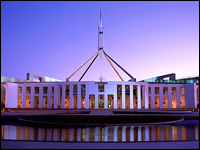 As the late Texas politician Robert Strauss used to say, “You can fool some of the people all of the time – and they’re the ones you need to concentrate on”.
As the late Texas politician Robert Strauss used to say, “You can fool some of the people all of the time – and they’re the ones you need to concentrate on”.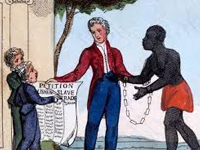 In his fascinating book, A Theory of Justice, the American moral, legal and political philosopher John Rawls promotes an idea called the Veil of Ignorance.
In his fascinating book, A Theory of Justice, the American moral, legal and political philosopher John Rawls promotes an idea called the Veil of Ignorance.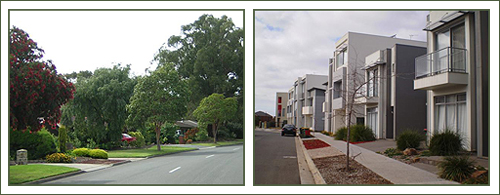
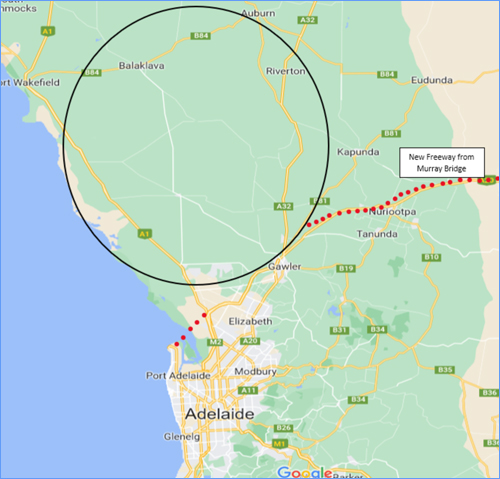
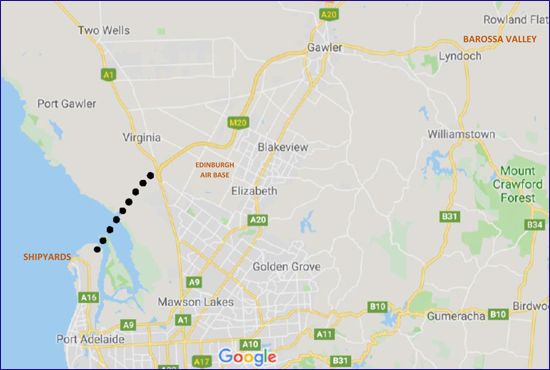
 Last week in Part 1 of our MATS Plan Revisited report, we looked at connecting Adelaide’s new maritime defence precinct with the northern Adelaide plains via a new gateway bridge over the Port River. An industry sector this size we said was going to need a massive amount of defence procurement support, including manufacturing, commercial, retail, education, housing, health, and other professional services. In Part 2 of our proposal, we connect these support industries with long-haul freight infrastructure.
Last week in Part 1 of our MATS Plan Revisited report, we looked at connecting Adelaide’s new maritime defence precinct with the northern Adelaide plains via a new gateway bridge over the Port River. An industry sector this size we said was going to need a massive amount of defence procurement support, including manufacturing, commercial, retail, education, housing, health, and other professional services. In Part 2 of our proposal, we connect these support industries with long-haul freight infrastructure.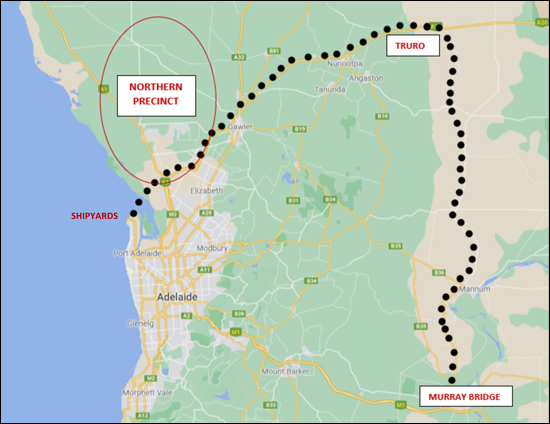
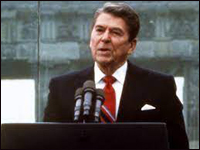 In his brilliant book ‘The Subversive Family’, British writer Ferdinand Mount argued that marriage and the family, far from being oppressed by the ruling class, are in fact the chief bulwarks against authoritarianism.
In his brilliant book ‘The Subversive Family’, British writer Ferdinand Mount argued that marriage and the family, far from being oppressed by the ruling class, are in fact the chief bulwarks against authoritarianism. When John D Rockefeller died in 1937 he was reputedly the richest man in the world. At his funeral were many of his employees as well as a large contingent from the press.
When John D Rockefeller died in 1937 he was reputedly the richest man in the world. At his funeral were many of his employees as well as a large contingent from the press. UK writer Hugh Rifkind once referred to politics as the only kind of fame which, once it’s over, is a relief. It’s the only form of fame that isn’t accompanied by adulation, he posited.
UK writer Hugh Rifkind once referred to politics as the only kind of fame which, once it’s over, is a relief. It’s the only form of fame that isn’t accompanied by adulation, he posited.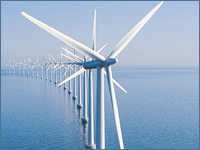 The most conspicuous feature of this election was the presence of the powerful ‘Baptists & Bootleggers’ phenomenon.
The most conspicuous feature of this election was the presence of the powerful ‘Baptists & Bootleggers’ phenomenon. A number of years ago I was building a house at Magill in Adelaide’s east when one of our bricklayers arrived on site with his bull terrier dog. Bricklayers always preferred bull terriers as pets because if a brick accidently fell on the dog’s head, the dog didn’t feel it and in fact thought it was a game and waited for more bricks to be dropped.
A number of years ago I was building a house at Magill in Adelaide’s east when one of our bricklayers arrived on site with his bull terrier dog. Bricklayers always preferred bull terriers as pets because if a brick accidently fell on the dog’s head, the dog didn’t feel it and in fact thought it was a game and waited for more bricks to be dropped.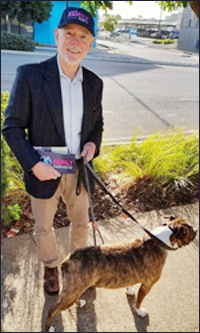 This incident came back to me last Saturday afternoon when I was asked to look after a voter’s bull terrier dog while its owner went in to vote at the Munno Para early voting centre in Adelaide’s north. Long-standing Family Party member and volunteer Roger Potger snapped the accompanying photo and dubbed it ‘Dog Day Afternoon’.
This incident came back to me last Saturday afternoon when I was asked to look after a voter’s bull terrier dog while its owner went in to vote at the Munno Para early voting centre in Adelaide’s north. Long-standing Family Party member and volunteer Roger Potger snapped the accompanying photo and dubbed it ‘Dog Day Afternoon’.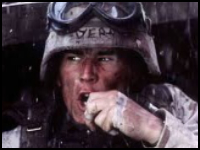 There’s a scene in the movie ‘Black Hawk Down’ where the sergeant yells to one of his soldiers, ‘Get in the truck and drive!’ ‘But I’ve been shot’, the soldier replies. ‘We’ve all been shot, now get in and drive’.
There’s a scene in the movie ‘Black Hawk Down’ where the sergeant yells to one of his soldiers, ‘Get in the truck and drive!’ ‘But I’ve been shot’, the soldier replies. ‘We’ve all been shot, now get in and drive’.